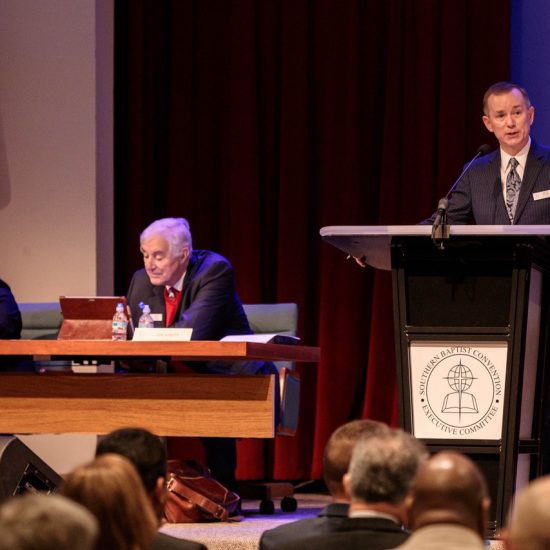Editor’s note: This is the fifth installment of a six-part series on the prevention of church conflict. The author is Wade Paris, former pastor and retired director of missions. He also is a former Word&Way trustee.

Wade Paris
The right people. In the church it is common to put people into the wrong places of service. There are seldom enough people to fill all the positions needed or wanted in the church. Consequently, churches often just put anyone in a place rather than let the position go unfilled.
A small church needed a pianist. A lady from the community volunteered. Though it seemed a God-send, she could not play. She hit the wrong notes, and the tunes were unrecognizable. When the pastor resisted her selection, people did not understand.
The pastor inherited the unpleasant duty of telling the “would be” pianist that she could not play; therefore, she could not fill the position.
Still, some did not understand. She was willing, and a pianist was needed; why not let her do it? To solve the problem, the church made a rule (a rule that could later come back to haunt them) that only church members could serve in leadership positions in the church. Since this lady was not a member and had said she would never change her membership, the problem was avoided.
When people are placed in church positions that are unsuited to their gifts, any or all of the following can result: (1) They become frustrated. (2) Their co-workers become frustrated. (3) They burn out quickly. (4) They grow angry. (5) They become a problem. (6) They leave the church.
It is easy for unhealthy people to find their way into the church. Indeed, it is the church’s responsibility to minister to these persons. This creates a spiritual dilemma; on the one hand, the church wants to minister to such persons; on the other hand, they will likely become a problem somewhere down the road.
The pastor probably cannot avoid this dilemma, but he can be aware it exists. Fighting with unhealthy people does not bring healing.
The right issues. Every church cannot do everything. Parishioners regularly return from visiting other churches saying, “We ought to be doing what this or that church is doing.”
One lady brought a bulletin relating a church’s ministry to seaman. Her church was thousands of miles from the sea. It was not the ministry for them.
Some ideas are obviously not Christian and easily dismissed. On the other hand, there are more legitimate Christian ministries than any one church can do. The church must decide what it can and cannot do. The question is not just a matter of worthiness; it is also a matter of resources, both human and financial.
A good rule to follow is to put an end time, i.e. evaluation time, on any planned project. Many churches continue ministries that have lost their effectiveness or perhaps never worked at all. They continue because no one knows how to say “Stop.” Setting an evaluation time at the outset can help. Giving time to unfruitful ministry is demoralizing.
The right spirit. Once a ministry is chosen, do it with a pleasant spirit and with all your might.
An association of churches wanted to begin a ministry to Hispanics. Previous attempts had failed, and the missionary was less than enthusiastic about it. However, once the decision was made to try again, he supported it unequivocally. He asked God to give him a good spirit about it. He was pleasantly surprised. The ministry was a huge success.
A church group wanted to resettle some Cambodian families in America; however, there was significant opposition. Those who felt led to do this ministry very maturely asked for permission to do it at their own expense but with the blessings of the church. The church had to approve the applications for visas.
“Give us your blessings, and pray for our success,” they asked. Their request was granted. The families arrived, and everyone was blessed. To their credit, those opposed were very supportive. Their spirit was right.
An older pastor had a bitter spirit. He felt he had been mistreated by churches where he served. He was a bad example for a young ministerial student in his church. The student sometimes prayed, “Dear Lord, please don’t let me become a bitter old minister like Pastor So-and-So.”
Sometimes churches do make a pastor’s life and ministry difficult. When that happens, the pastor should pray for a right spirit rather than a winning hand.
The entire Conflict Prevention series:






